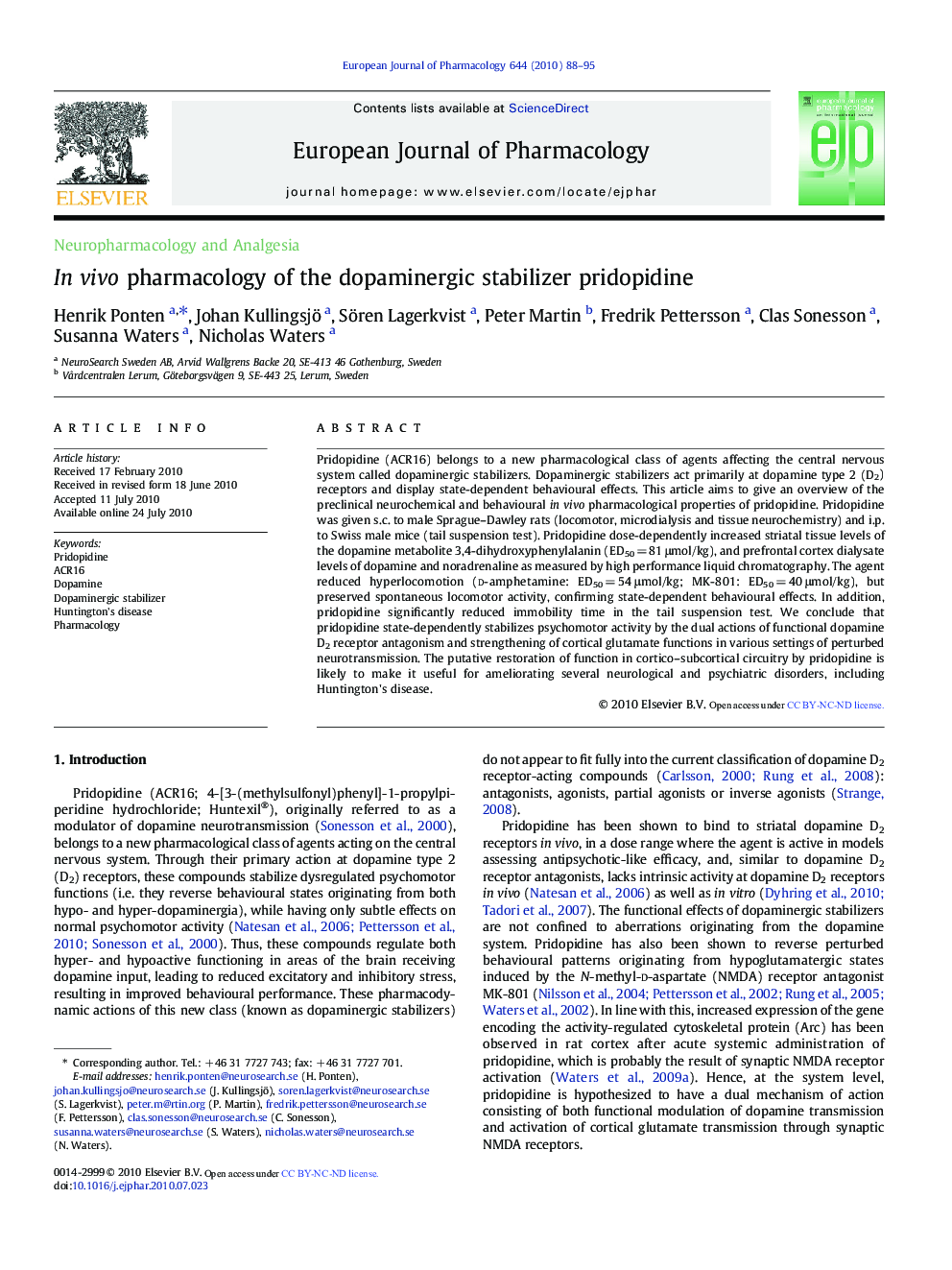| Article ID | Journal | Published Year | Pages | File Type |
|---|---|---|---|---|
| 5830531 | European Journal of Pharmacology | 2010 | 8 Pages |
Pridopidine (ACR16) belongs to a new pharmacological class of agents affecting the central nervous system called dopaminergic stabilizers. Dopaminergic stabilizers act primarily at dopamine type 2 (D2) receptors and display state-dependent behavioural effects. This article aims to give an overview of the preclinical neurochemical and behavioural in vivo pharmacological properties of pridopidine. Pridopidine was given s.c. to male Sprague-Dawley rats (locomotor, microdialysis and tissue neurochemistry) and i.p. to Swiss male mice (tail suspension test). Pridopidine dose-dependently increased striatal tissue levels of the dopamine metabolite 3,4-dihydroxyphenylalanin (ED50 = 81 μmol/kg), and prefrontal cortex dialysate levels of dopamine and noradrenaline as measured by high performance liquid chromatography. The agent reduced hyperlocomotion (d-amphetamine: ED50 = 54 μmol/kg; MK-801: ED50 = 40 μmol/kg), but preserved spontaneous locomotor activity, confirming state-dependent behavioural effects. In addition, pridopidine significantly reduced immobility time in the tail suspension test. We conclude that pridopidine state-dependently stabilizes psychomotor activity by the dual actions of functional dopamine D2 receptor antagonism and strengthening of cortical glutamate functions in various settings of perturbed neurotransmission. The putative restoration of function in cortico-subcortical circuitry by pridopidine is likely to make it useful for ameliorating several neurological and psychiatric disorders, including Huntington's disease.
